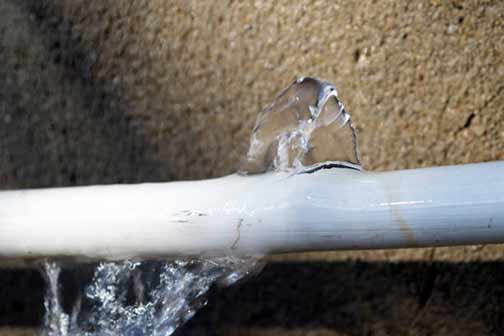
Frozen pipes, due to exposure to extreme cold, are a huge problem for homes in regions with harsh winters, says Bigham & Associates. For these homeowners, it is not uncommon for water pipes in the unheated spaces of their home – attic, garage or basement – to freeze during spells of chilling weather.
The trouble with frozen pipes is not just the inconvenience of a temporary lack of water; it is the costly property damage that sometimes follows the event. When pipes freeze they often crack. After the ice thaws water can gush from the pipe opening to flood the home.
The good news though is with a few simple steps, you prevent this problem from ever happening in your home. Here are eight highly effective steps to protect the water pipes in your house from freezing winter temperatures.
8 tips to help you avoid frozen pipes this winter
- Ensure all vulnerable pipes are insulated
Pipes in the unheated spaces in your home, such as the basement, crawlspace, garage and attic, are most vulnerable to freezing. This is also true of pipes inside or in contact with the uninsulated outer walls of the home. Insulating these pipes or adding insulation to exposed walls can help prevent frozen pipes in your home.
- Seal all cracks and openings
It is easy to underestimate the impact of small openings on the interior temperature of your home, especially the unheated areas. Major access points for cold air into your home include those openings where water or drain pipes and electrical wires penetrate the walls of the building. Other major entry points for cold drafts are the cracks and openings around the windows, doors and sill plates.
- Drain outdoor faucets and other pipes that are likely to freeze
Outdoor hose bibs, swimming pool lines and sprinkler pipes will not be used during winter. Before temperatures start to plummet, you want to drain these vulnerable lines. For garden hoses and similar lines, you should go further to disconnect and stow them away in a safe place. For all vulnerable features, you also want to make sure the water supply to the line is shut off.
- Install a freeze-proof faucet
Even when you disconnect your garden hose, your outdoor faucet can still compromise the indoor water pipes connected to it. Installing a freeze-proof faucet (also known as a sill cock or frost-proof hose bib) can prevent this. The valve seat for a free-proof faucet, instead of being near the wall exposed to cold air, is set back inside your home, where it is warmer.
- Keep your garage door closed
Uninsulated water supply lines in the garage may freeze if exposed to cold air. Keeping the garage door closed prevents cold air from reaching these pipes. Instead, the heated air inside your home can circulate to this unheated space and keep the pipes in your garage safe. Moreover, keeping your garage doors closed helps to keep your energy bills low.
- Keep cabinet doors open
Even though they are inside your home, water pipes at the back of cabinets and cupboards can also freeze. That will happen if the cabinet or cupboard doors are always closed. It prevents the warm air inside your home from circulating into the enclosed spaces. To keep these water pipes warm, keep your cabinet doors open to let warm air circulate.
- Leave the taps slightly open
The water inside your pipes is unlikely to freeze if it is moving. Constant movement dilutes the temperature of the water and prevents it from getting too cold. Allowing a trickle of water to flow from your faucets is a good way to keep water moving through your pipes. The impact of this step on your water bill is nothing compared to the damage a frozen pipe can do to your home.
- Adjust your thermostat settings
Having the right temperature settings makes it easier to keep your home warm and your water pipes safe during winter. Particularly if you are going to be away from your house, you don’t want to keep the temperature lower than 55° F. Do not turn your HVAC off completely, even if you are not home. If you do, the interior of your home could easily reach freezing temperatures.
Finally, you may consider replacing your existing pipes with PEX pipes. PEX pipes can withstand freezing temperatures because they can expand without cracking. If the water inside freezes, the pipes will expand and return to normal when the ice thaws.
Also, it is essential to have an arrangement with an emergency plumber. This is because, even with your best efforts, things can still go wrong with your plumbing. If plumbing problems ever happen in your home in winter an emergency plumber will help to minimize their impact.


